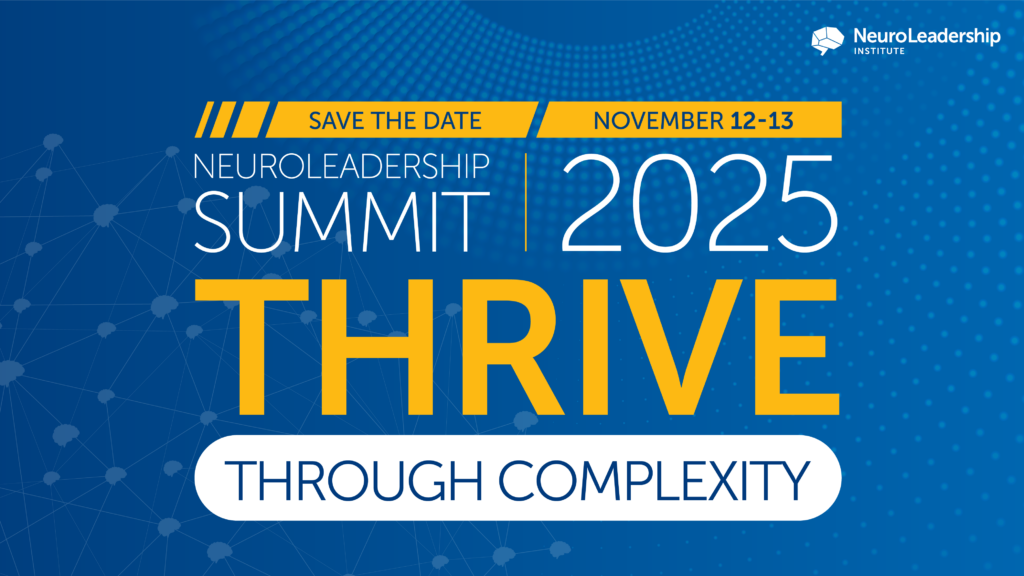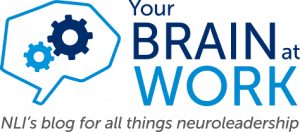by Chris Weller Today marks Day 1 of the 2025 NeuroLeadership Summit: Thrive Through Complexity, a two-day event dedicated to a theme that so many leaders and organizations have been...
Read More →

FEATURED INSIGHT
by Chris Weller Today marks Day 1 of the 2025 NeuroLeadership Summit: Thrive Through Complexity, a two-day event dedicated to a theme that so many leaders and organizations have been...
Read More →
Psychological research can help us better direct diverse teams to the right places, and at the right time, to make the most of early wins.

Despite widespread and increasing reports of job burnout in the past year, the concept of burnout is often misunderstood or overlooked—to the detriment of both individuals and organizations. Dr. Kamila Sip, the Senior Director of Neuroscience Research at the Neuroleadership Institute, recently joined the HR Works Podcast to explore the concept through the lens of neuroscience. In the episode, she explores the causes of job burnout, sheds light on common misconceptions about burnout, and shares how organizations can prevent and alleviate job burnout. Kamila explains that while the concept of job burnout is not new—it was declared an occupational phenomenon by the World Health Organization back in 2019— for many, the experience of burnout was amplified and intensified by the massive amount of uncertainty we experienced in 2020. When the pandemic struck, and people moved from desks and offices to kitchen counters and converted bedrooms, many lost a sense of security in their jobs, their finances, and their health. As month rolled into month, and the pandemic did not recede, neither did the stress. In other words, we went from feeling stressed sometimes to feeling stressed all of the time. While the psychological toll of the pandemic is a huge contributor to stress and anxiety, it also magnified the workplace challenges in ways that exposed the causes of job burnout that are distinct from being generally overworked or stretched too thin. This is because the real causes of job burnout are more rooted in organizational culture and expectations than in the individuals’ ability to manage the stress of life. Kamila explains that job burnout, like all stress phenomena, affects how we make decisions, how we regulate our emotions, and how we interact with others (all critically important to work). She also unpacks the role and importance of having our psychological needs met, and how by meeting those needs, organizations can reduce job burnout and increase a healthy performance, even in the face of a crisis. To learn more about burnout and what organizations can do to prevent it, listen to the full episode of the HR Works Podcast here.

If leaders want to make the right decisions when it comes to hybrid work, it’s important to consider the question through the lens of neuroscience.

By understanding brain science and valuing people, your organization can unlock the unexpected benefits of the hybrid workplace.

With our opportunities for face-to-face interaction virtually nil, organizations have to rethink learning—and that’s a good thing.

Join millions of employees in creating culture change at scale by reaching out today.

In 2007, David and Lisa Rock and their team had been working in leadership development and executive coaching for ten years, when David coined the term “NeuroLeadership.”ef

North America
Africa
South America
Asia
Europe
Australia
© NeuroLeadership Institute 2025. All Rights Reserved
This site uses cookies to provide you with a personalized browsing experience. By using this site you agree to our use of cookies as explained in our Privacy Policy. Please read our Privacy Policy for more information.